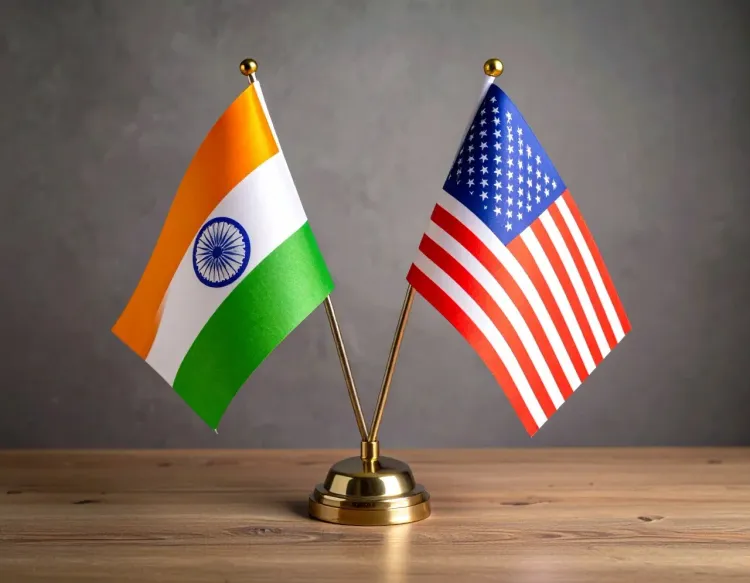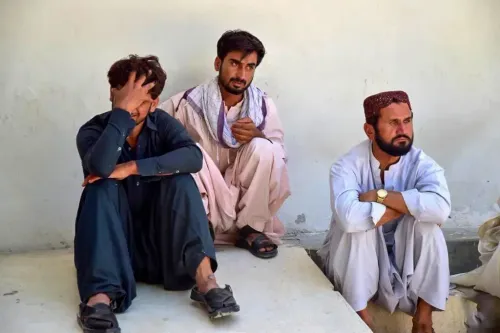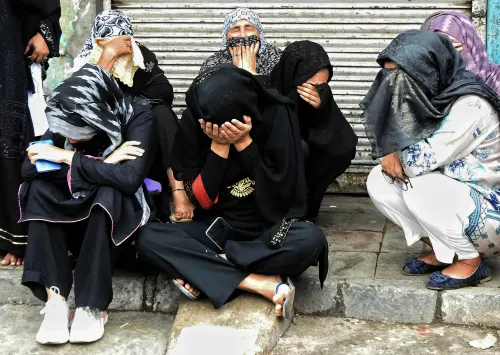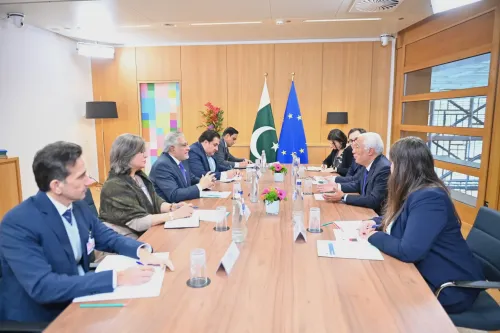Are US Tariffs Causing India to Strengthen Its Economic Resilience?

Synopsis
Key Takeaways
- India's economy is resilient and capable of navigating tariff challenges.
- Strategic reforms and strong domestic demand have transformed India's economic landscape.
- Firm resistance to US demands underscores India's commitment to economic sovereignty.
- Initiatives like Atmanirbhar Bharat are pivotal for technological autonomy.
- India's position as a global player is strengthened through strategic alliances.
New Delhi, Aug 10 (NationPress) As discussions on trade between India and the US hit a roadblock, the strength of India’s economy serves as a crucial element in navigating these tariff challenges with minimal disruption. Over the last decade, India has evolved into a diverse economic powerhouse, supported by strategic reforms and a strong domestic demand.
BJP national spokesperson Tuhin Sinha noted that the trade discussions, which initially aimed to enhance mutual economic interests, have reached an impasse as the US imposed ambitious and arguably unrealistic demands on India.
“The Trump administration aimed for extensive market access for American agricultural products, pharmaceuticals, and technology services, while simultaneously imposing high tariffs on Indian exports such as steel, aluminum, textiles, and IT services. India, under the strong leadership of Prime Minister Narendra Modi, firmly resisted these tariffs and demands that jeopardized local stakeholders,” he mentioned in an opinion piece in NDTV.
He added that India is dedicated to safeguarding the interests of farmers, fisheries, and Micro, Small, and Medium Enterprises (MSMEs), refusing to compromise on its economic sovereignty.
“This principled approach, as highlighted by economists Stuart and Linda Stern in their 2023 book India's Economic Ascendancy: Navigating Global Trade Challenges, has not only protected India's vital sectors but also positioned it to emerge stronger from the tariff turmoil,” Sinha wrote.
A recent SBI Research report indicated that imposing a 25 percent penalty on goods trade with India, with a potential additional 25 percent on the world's largest democracy, may not be a wise policy decision for the US and its populace.
India must continue to defend its farmers against potential exploitative practices from global conglomerates seeking a share of the lucrative “Desi” market without contributing to sustainable market infrastructure, agri value chain financing, or welfare initiatives that improve the living standards of the farming community, the report emphasized.
According to Sinha, this tariff crisis offers India a strategic chance to hasten its pursuit of technological autonomy and broaden its global market presence.
“The Atmanirbhar Bharat (Self-Reliant India) initiative, driven by PM Modi, has spurred investments in indigenous technologies, especially in pivotal areas like semiconductors, 5G infrastructure, and renewable energy,” he pointed out.
The Production-Linked Incentive (PLI) scheme has drawn global tech giants such as Apple, Samsung, and Foxconn, leading to a 22 percent increase in electronics exports in 2024, according to the Ministry of Electronics and Information Technology.
This tariff crisis has also transformed the geopolitical landscape, allowing India to assert its global influence.
“By standing firm against coercive trade tactics, India has strengthened its reputation as a principled and independent power. This determination has paved the way for new alliances, particularly within the Russia-India-China (RIC) framework,” stated Sinha.
Prime Minister Modi's anticipated visit to Beijing for the 2025 SCO Summit and his recent conversation with Brazilian President Luiz Inacio Lula da Silva indicate India’s intent to deepen relations with BRICS partners.
“These diplomatic efforts, as noted by the Ministry of External Affairs (2025), illustrate India's strategic balancing act, leveraging the tariff dispute to enhance its geopolitical influence. The potential revival of RIC cooperation, alongside reinforced BRICS collaboration, positions India as a key player in a multipolar world. By nurturing these partnerships, India is not only countering US pressure but also crafting a new global order that prioritizes mutual cooperation over unilateral demands,” Sinha emphasized.









